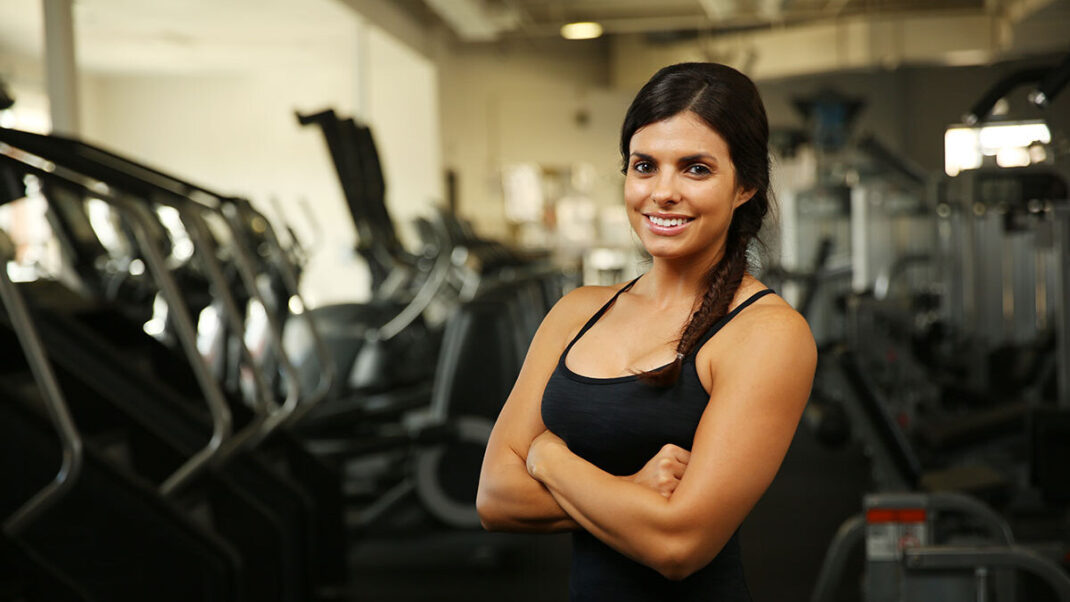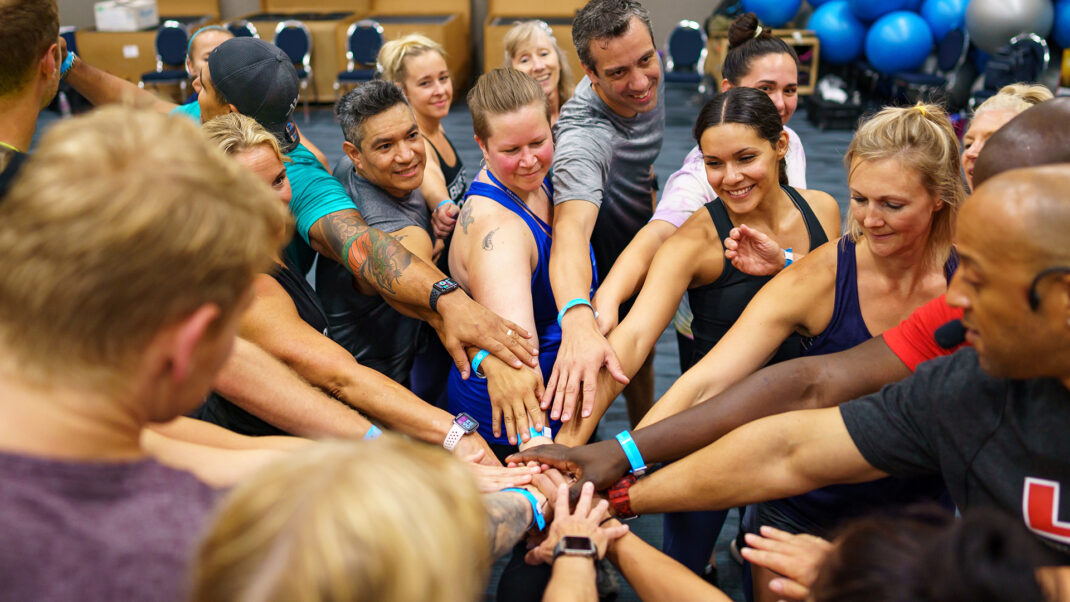IDEA Career Success Workshop: Learn to Grow
A Strategic Approach to Continuing Education for Fitness Professionals

In any profession and in life; success is often measured by return on investment (ROI). For today’s fitness professionals, that ROI goes far beyond financial gain. It encompasses improved client outcomes, professional credibility, creative fulfillment, and long-term career viability. The key to unlocking these multifaceted returns? Intentional, ongoing learning. In an industry shaped by science, technology, and evolving client needs, staying current is not optional—it’s essential.
The Essential Role of Continuing Education
Continuing education has become the heartbeat of a thriving fitness career. While certification renewal is the most obvious driver, the benefits of ongoing education extend far beyond a credential. It fuels personal and professional growth, increases your value in the marketplace, and keeps your knowledge aligned with the latest evidence-based practices. With new modalities, research, and tools entering the industry every year, staying static means falling behind. Instead, embracing a lifelong learning mindset ensures you’re not only relevant but sought-after.
Career-Enhancing Activities:
- Subscribe to professional newsletters and journals that highlight current research and trends (e.g., IDEAfit, ACSM’s Health & Fitness Journal).
- Attend in-person and online conferences, TEDx events, and masterclasses to continuously expose yourself to new ideas and perspectives.
“Continuing education helps professionals stay current with developments in their fields and enhances their ability to provide high-quality service” (American Library Association, 2020).
Earning and Keeping Trust Through Knowledge
Client relationships are built on trust, and trust is earned through competence. Clients want to feel safe, seen, and confident in your guidance. They expect you to bring more than charisma and energy to the session—they rely on your expertise to help them move better, feel stronger, and avoid injury. As a fitness professional, staying informed about emerging research in kinesiology, behavior change, nutrition, and even mental health allows you to offer comprehensive, ethical support. It also helps you deliver workouts that are creative, efficient, and results-driven.
Career-Enhancing Activities:
- Take evidence-based courses in exercise science, biomechanics, and injury prevention from CEU-approved providers.
- Enroll in behavior change or motivational interviewing classes to improve communication and coaching skills.
- Follow thought leaders and researchers on PubMed or Google Scholar to access cutting-edge studies and whitepapers.
“Practitioners who remain knowledgeable about new developments in fitness science are better able to provide evidence-based services to their clients” (Thompson, 2023).

Growth, Income, and Confidence
A structured continuing education path boosts your self-confidence, increases your ability to deliver outcomes, and enhances your income potential. When you pursue advanced training or certifications in specific niches—like women’s health, functional training, or older adult fitness—you expand the demographic you serve and diversify your revenue streams. Additionally, knowledge boosts confidence. When you’re confident in your craft, you show up stronger for your clients and command higher fees. Strategic education is not just a cost—it’s a career amplifier.
Career-Enhancing Activities:
- Enroll in specialized certification tracks such as the Orthopedic Exercise Specialist or Senior Fitness Specialist.
- Offer new formats like virtual classes, small group training, or outdoor bootcamps to appeal to more audiences.
- Take business development courses to learn how to set pricing, manage finances, and scale services.
“Specialization in fitness training not only enhances competence but also increases a professional’s ability to command higher rates and attract a specific client base” (International Health, Racquet & Sportsclub Association, 2022).
Creating Your Continuing Education Roadmap
To get the highest ROI, you need a roadmap. Instead of signing up for courses based solely on convenience or deadlines, map out your goals and align your learning accordingly. Think of your education plan as a strategic blueprint guiding you toward career milestones. Whether you’re working toward a promotion, launching a business, or pivoting into a new specialty, an intentional plan helps you build the right skills at the right time. A good roadmap includes required CEUs, elective courses, networking opportunities, and leadership development.
Career-Enhancing Activities:
- Use tools like Notion or Google Sheets to build a personalized learning calendar that outlines your yearly goals and CEU needs.
- Join mentorship groups or mastermind collectives that keep you accountable to your learning plan.
- Perform quarterly check-ins to adjust your roadmap as new opportunities or challenges arise.
“Strategic professional development planning leads to improved outcomes, both for individuals and the organizations they serve” (National Association for Continuing Education, 2021).
Smart Spending: Budgeting for Your Education
Education is an investment—and like any smart investment, it should be budgeted for wisely. Fitness professionals often juggle multiple expenses, from liability insurance to marketing tools, but your education deserves a prioritized space in your financial plan. Stretch your dollars by looking for bundled CEU packages, employer-sponsored learning stipends, or tax-deductible professional development costs. Remember: Free doesn’t always mean better, but strategic spending can amplify the quality and quantity of what you learn.
Career-Enhancing Activities:
- Set aside a portion of your monthly earnings in a professional development fund.
- Compare pricing and value across education platform. Membership programs, like IDEAfit+, are great ways to extend your education budget.
- Track tax-deductible education expenses and consult a CPA to take advantage of write-offs.
“Professionals who plan and budget for ongoing education are more likely to pursue meaningful training rather than react to deadlines” (ALA, 2020).

Convenience and Flexibility Matter
Balancing client sessions, workouts, and personal life can be overwhelming. Fortunately, the rise of hybrid and digital learning platforms has made it easier than ever to fit professional development into your routine. From on-demand video modules to interactive e-books and mobile apps, there’s no shortage of flexible options. Learning should feel empowering, not exhausting. Choosing formats that work with your lifestyle ensures you maintain momentum and avoid burnout.
Career-Enhancing Activities:
- Choose CEU programs that are self-paced and mobile-compatible for learning on the go.
- Commit to a “learning hour” each week—treat it like a workout for your brain.
- Mix formats: combine video content, audio lectures, live virtual workshops, and hands-on events for a well-rounded approach.
“The rise of flexible, online learning options has made continuing education more accessible than ever before” (Council for Adult and Experiential Learning, 2022).
Diversify and Specialize Simultaneously
Being a well-rounded fitness professional means mastering core competencies while developing unique specialties. This dual focus allows you to serve a broad client base while establishing a clear niche. For example, a general personal trainer may branch into prenatal fitness, tactical fitness, or recovery and mobility. These niches differentiate you, generate referrals, and provide opportunities to charge premium rates. The goal isn’t just more education—it’s the right education to support your evolution.
Career-Enhancing Activities:
- Take CEUs in complementary disciplines like sports nutrition, mental performance, or stress management.
- Get certified in trending formats like kettlebell training, fascia release, or virtual coaching.
- Collaborate with physical therapists, dietitians, or mental health counselors to provide integrated care.
“Combining diverse skill sets in fitness and allied health fields enhances professional identity and marketability” (American Council on Exercise, 2023).
Follow Your Passion, Fuel Your Purpose
Professional development should spark joy. When you’re learning about topics, you’re genuinely passionate about—be it youth athletics, adaptive fitness, or mindfulness—you bring more energy to your work and deepen your impact. Passion-driven learning is also more sustainable. It prevents burnout, inspires creativity, and often leads to opportunities like speaking engagements, writing gigs, or leadership roles. When you love what you’re learning, that passion becomes infectious.
Career-Enhancing Activities:
- Take time to reflect: What topics excite you? Where do you want to make the biggest impact?
- Volunteer, mentor, or teach others in your area of specialty.
- Pitch articles or guest lectures to organizations like IDEA.
“Lifelong learning is most impactful when driven by personal values and interests” (Knowles et al., 2015).
Make It a Lifestyle, Not a Deadline
Continuing education should not be reactive—it should be a proactive lifestyle. Instead of scrambling for last-minute CEUs, adopt a long-term vision for your professional development. You’ll see better results, enjoy the process more, and provide elevated service to every client you touch. Ultimately, a commitment to lifelong learning transforms your career, your confidence, and your contribution to the fitness industry.
“The true reward of professional learning lies in its ability to transform both practice and purpose” (ALA, 2020).
References
-
- American Library Association. (2020). Continuing education policy statements. Retrieved from https://www.ala.org
-
- American Council on Exercise. (2023). ACE continuing education courses. Retrieved from https://www.acefitness.org
-
- Council for Adult and Experiential Learning. (2022). The future of adult learning. Retrieved from https://www.cael.org
-
- International Health, Racquet & Sportsclub Association (IHRSA). (2022). Fitness training trends. Retrieved from https://www.ihrsa.org
-
- Knowles, M. S., Holton, E. F., & Swanson, R. A. (2015). The adult learner: The definitive classic in adult education and human resource development (8th ed.). Routledge.
-
- National Association for Continuing Education. (2021). Why professional development planning matters. Retrieved from https://www.naceonline.com
-
- Thompson, W. R. (2023). Worldwide survey of fitness trends for 2023. ACSM’s Health & Fitness Journal, 27(1), 19–30. https://doi.org/10.1249/FIT.0000000000000778





